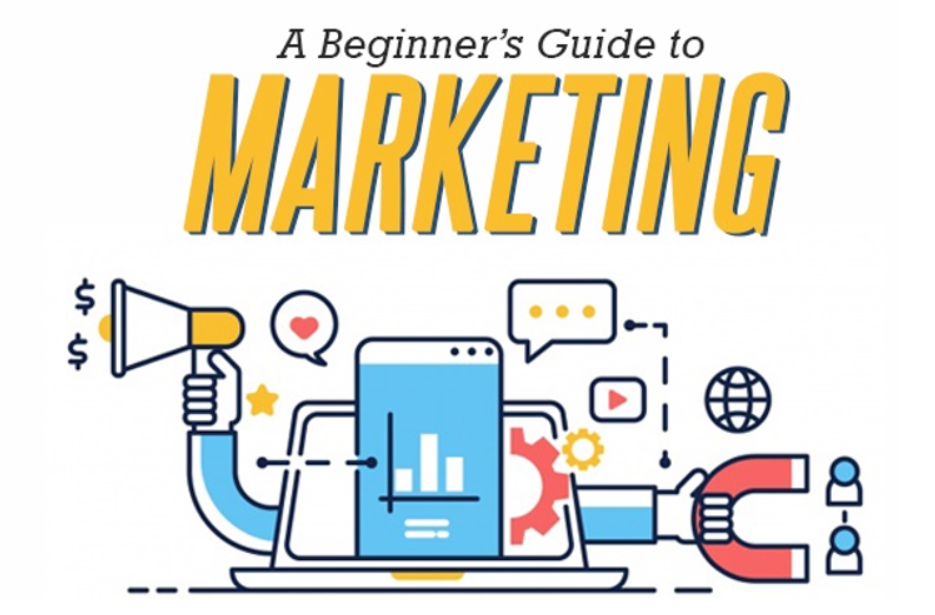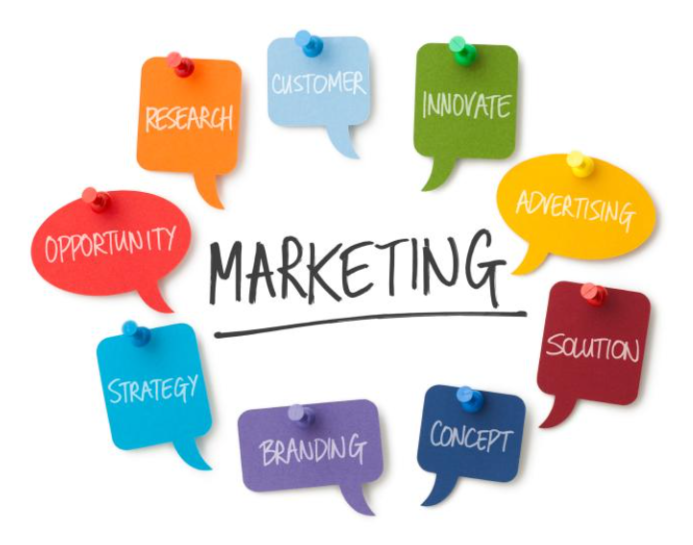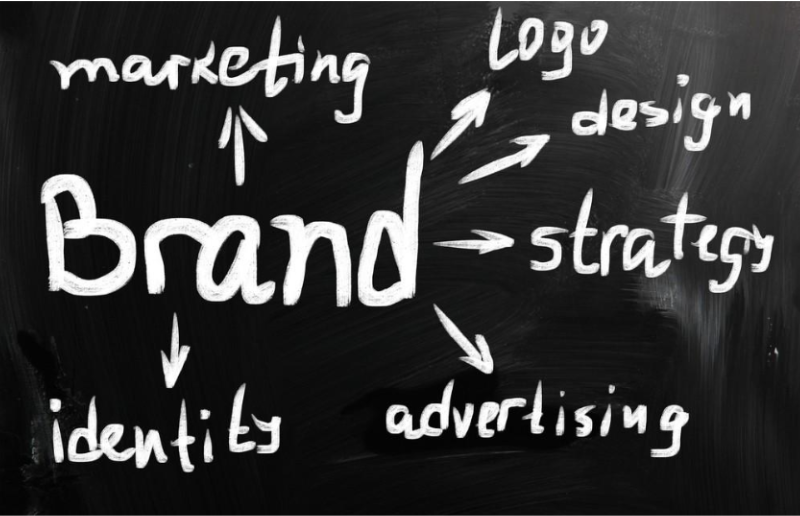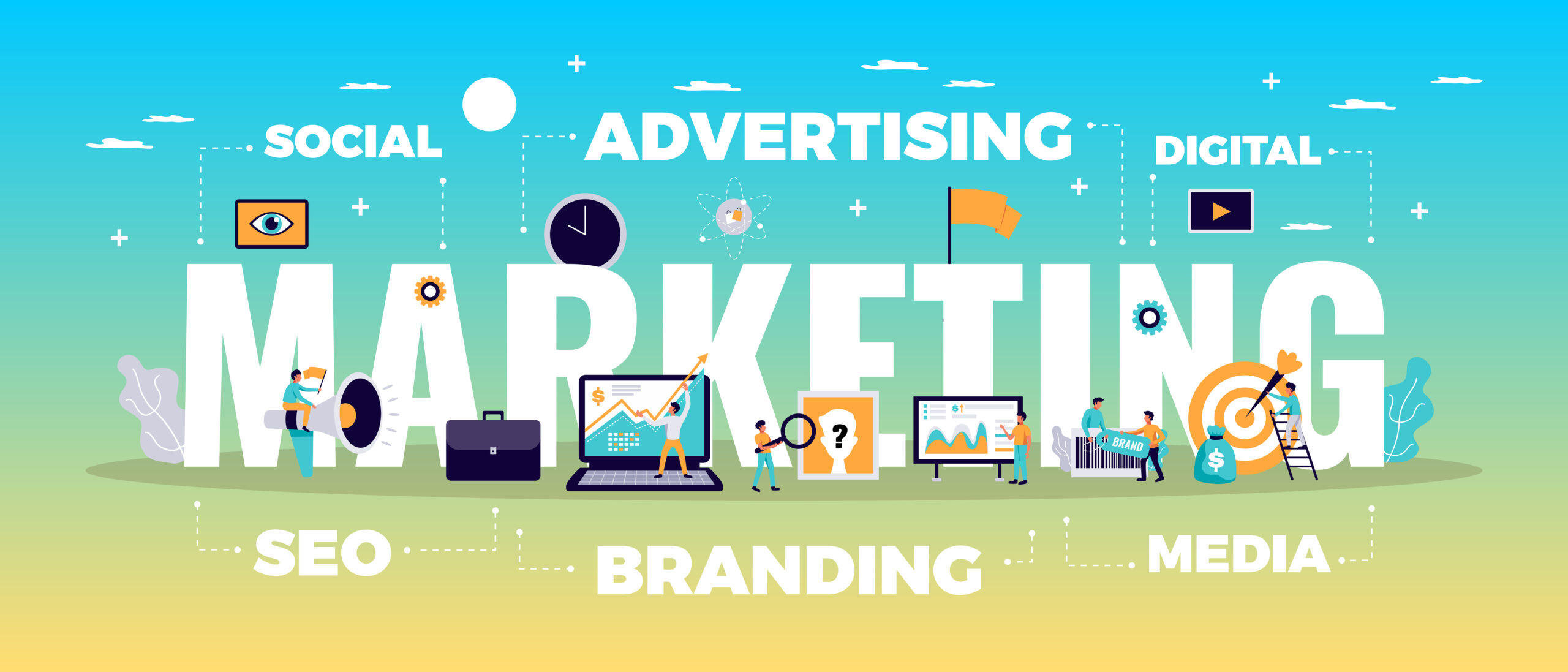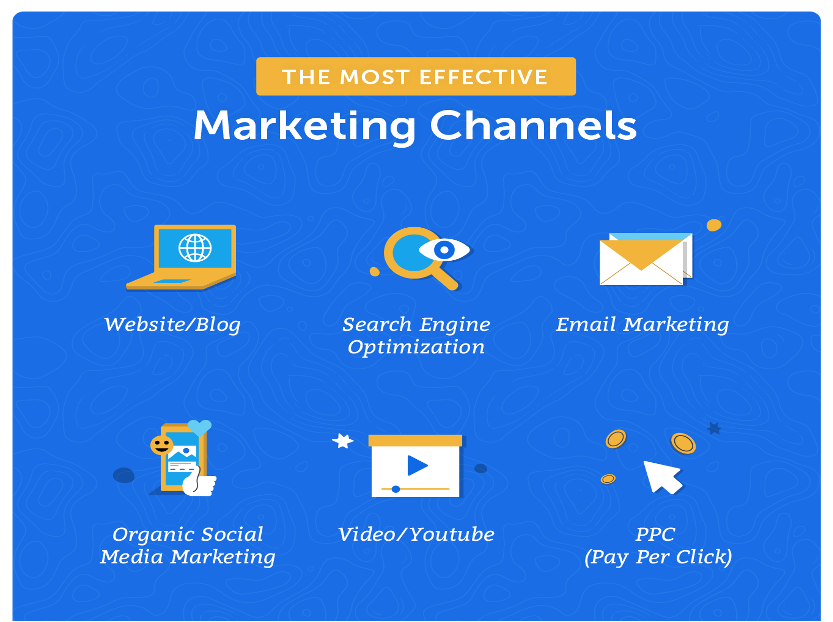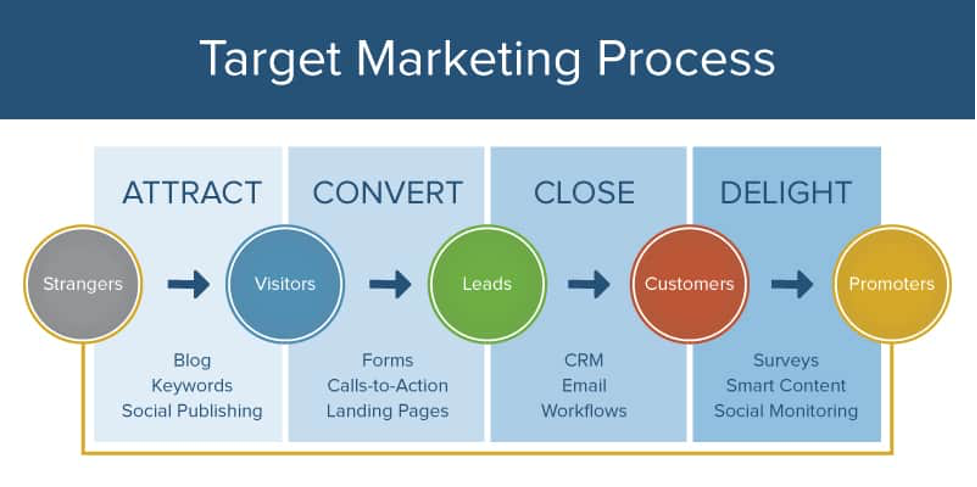WHAT IS MARKETING ? An Introduction to Marketing.
The practice of distributing, selling, and promoting a good or service is known as marketing. In order to guarantee customer happiness and loyalty, it entails a broad variety of tactics and actions targeted at comprehending client demands, adding value, and fostering connections. Everything from product creation and market research to sales, promotion, and customer support is included in introduction to marketing.
You want to demonstrate your consumers in the marketing industry why your firm is better than your competitiveness. If you want to achieve success, your company plan must include a marketing strategy. How are you aware of the effectiveness of certain methods? You may start employing them to enhance your visibility and income once you have determined which strategies are good for your firm. Your objective is generally to engage your consumers and influence them to help them develop.
The 4 Ps of Marketing: Product, Price, Place, Promotion
The marketing mix, also referred to as the 4 Ps of marketing, is a set of fundamental components that marketers utilize to create strategies that effectively promote and sell goods and services. Here’s a thorough examination of each of the four Ps:

1. Product
The actual thing or service that the consumer is supplied is called the product. It includes not just the actual product but also its characteristics and advantages.
Important things to consider-
- What distinguishes the product? What qualities and advantages does it provide?
- Making sure the product satisfies requirements and meets expectations from customers.
- Creating a powerful brand identity and image is known as branding.
- The way a product is shown to the customer, taking into account its features, composition, and ease of use.
- Managing a product’s inception, growth, maturity, and decline phases is known as its lifecycle.
- Offering after-sale assistance, guarantees, and customer support.
2. Place
Place describes the places and distribution routes where the product is made available to the consumer. It entails making certain the product is available at the appropriate time and location.
Important things to consider-
- Selecting the appropriate channels e.g., retail locations, internet platforms, direct sales.
- Organizing the flow of goods from manufacturing to delivery is known as supply chain and logistics.
- Choosing the level of market coverage such as intensive, selective, or exclusive distribution is known as market coverage.
- Selecting key sites for distribution and sales hubs.
- Maintaining ideal stock levels to satisfy consumer demand without going overboard is known as inventory management.
- Facilitating clients’ finding and purchase of the goods with ease is known as accessibility.
3. Price
Price is the sum of money that buyers must spend in order to purchasethe item. It affects the product’s standing in the market and represents the perceived worth of the product.
Important things to consider-
- Picking the most effective method (e.g., value-based pricing, cost-plus pricing, competitive pricing).
- Matching the product’s cost to the advantages and value it offers the user.
- Using sales, discounts, and exclusive deals to draw clients.
- Determining the terms and means of payment (such as installment plans or credit terms).
- Evaluating the pricing tactics of rivals and placing oneself appropriately.
- Modifying costs in response to consumer demand and external factors.
4. Promotion
Promotion is the umbrella term for all of the many approaches and techniques used to convey the benefits of a product and influence consumers to buy it. It involves raising awareness and sparking curiosity.
Important things to consider-
- Using media platforms to reach a large audience, such as radio, TV, and internet advertisements.
- Utilizing media relations and PR to manage the company’s reputation and create a good image.
- Providing discounts, vouchers, and competitions as means of encouraging purchases.
- Direct communication with customers via sales agents.
- Generating and disseminating good content to draw in and involve the intended audience.
- Utilizing social media channels for product promotion and client interaction.
- Sending customized emails to keep up consumer connections and nurture leads.
- Taking part in or supporting activities to raise awareness of and interest in a brand.
Advertising vs. Marketing
Introduction to Marketing and Advertising Difference:
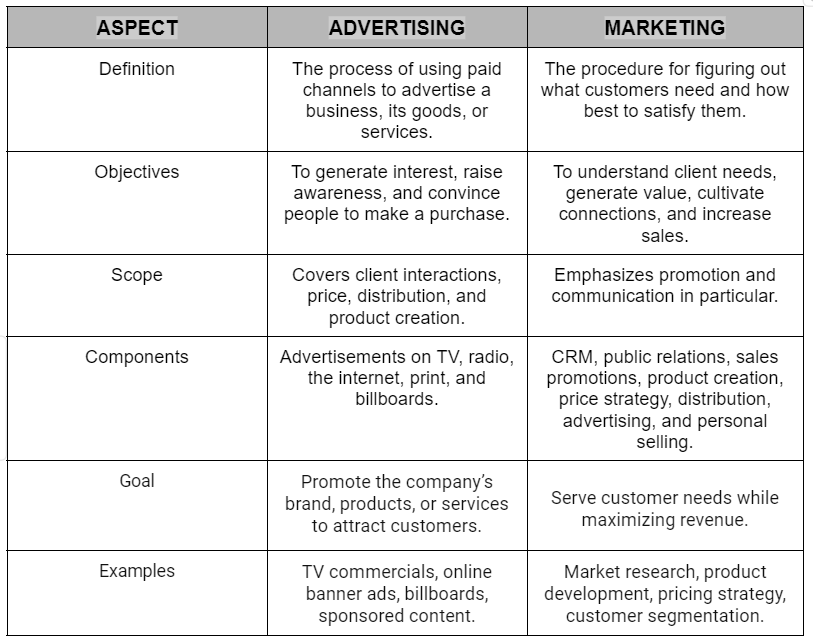
Aspects of Marketing
The process of product, pricing, advertising and location is one way you observe marketing in action. A huge group of individuals require a product or service that you sell. It may be tough to observe any growth in your enterprise if your product fits only a tiny population. Your product price point should be cheap, yet still enable a fair profit margin to be observed for consumers. It is vital to communicate with your consumers to select your business over another means of promoting it. Finally, the location of your goods is crucial for deciding the location. Be sure your product is available to consumers, whether online or in a shop.
Apart from product development , pricing , promotion and distribution (place) marketing aspects also includes –
1.Market research –The process of collecting and evaluating information about the target market, clients, and rivals in order to make judgments.
ALSO READ- TOP 10 BENEFITS OF MARKET RESEARCH
2. Branding – Establishing and preserving a powerful brand identity and image that appeals to the intended market.
3. Customer relationship management (CRM) – process of controlling exchanges to create and preserve enduring bonds with clients and raise levels of satisfaction.
4. Sales Approach – Developing and implementing successful sales strategies to meet goals and increase income.
5. Measurement and Analysis – Measuring performance and making data-driven decisions by evaluating marketing initiatives using metrics and statistics.
6. Digital Marketing – Using online advertising, social media, email marketing, SEO, and other digital platforms to connect and interact with consumers.
ALSO READ – UNDERSTANDING DIGITAL MARKETING: DEFINITION, TYPES, BENEFITS & KEY CONCEPTS
Purpose of Marketing
- Examine data and market trends to make well-informed judgments and modify plans for ongoing development.
- Promote company expansion by seeking out new markets and growing the clientele.
- Improve client satisfaction and engagement by utilizing innovative marketing strategies and efficient digital platforms.
- Understand and establish the preferences and wants of your customers in order to provide goods and services that meet their demands.
- To stand out from the competition and create a distinct market presence, develop and preserve a unique brand identity.
- To create interest and demand, explain to potential customers the worth and advantages of goods and services.
- Establish pricing that are both profitable and competitive, reflecting the product’s value and attractive to the intended market.
- Make sure the items are accessible at the appropriate time and location so that clients may buy them easily.
Your firm is sure to experience a gradual decline without a solid marketing campaign. For a good business plan and total income and exposure success, marketing is vital. You can capture and influence your purchasing decisions in the interest of a consumer market. Your business can simply provide you a cause to buy your goods, but you need a strategy to accomplish so.
Types of Marketing
The different approaches and strategies used by companies to market their goods and services and connect with their target market are referred to as marketing methods. Here are Introduction to Marketing Common Techniques :
1. Advertising: Paid advertising to promote goods and services across a variety of mediums, including print, radio, television, internet, and social media.
2. Digital marketing: Reaching and interacting with customers using digital platforms and technologies including websites, social media, email, and mobile applications.
3. Content Marketing: Producing and distributing useful, timely, and coherent material to draw in and hold on to a precisely defined audience, eventually resulting in lucrative consumer action.
4. Social Media Marketing: Connecting with the target audience, increasing brand recognition, and promoting goods and services via the use of social media platforms (such as Facebook, Instagram, Twitter, and LinkedIn).
5. Email marketing : The process of sending relevant emails to consumers and prospects in an effort to develop connections, nurture leads, and increase sales or conversions.
6. Search Engine Optimization (SEO): The process of improving a website’s and its content’s visibility and ranking on search engine results pages (SERPs) in order to draw organic (unpaid) visitors is known as search engine optimization, or SEO.
7. Public relations: Managing the distribution of information between a company or organization and the general public in order to improve brand recognition and exposure is known as public relations, or PR.
8. Direct marketing : A way of delivering advertisements to customers directly in an effort to elicit a reaction or increase sales (by mail, email, or SMS, for example).
9. Influencer marketing : The practice of promoting goods or services by collaborating with influencers who have a large following and sway over their audience.
Learn more about influencer marketing – VIRTUAL INFLUENCERS: THE NEXT FRONTIER IN INFLUENCER MARKETING
10. Affiliate Marketing : Connecting with affiliates who market goods or services in return for a cut of each sale generated by their recommendation is known as affiliate marketing.

The Importance of Branding for Your Business
- A well-designed brand makes your company easily identifiable to consumers and helps it stand out from rivals in a competitive market.
- Consumers are given confidence by a great brand because it consistently conveys dependability and quality, which promotes repeat business.
- Brands with a distinct identity and set of core principles engage emotionally with consumers, encouraging advocacy and loyalty.
- By elucidating your distinct value proposition through strategic branding, you may successfully place your goods or services in the marketplace.
- Having a clear brand inspires and unites workers with the company’s ideals, which boosts morale and output.
Use of Logos for Marketing
Logos may be helpful to your company since they reflect your corporate principles visually. With a purposeful logo, you may demonstrate to consumers what your firm is all about. Visual logos can be identified by customers. You may also use it to decide whether or not you are doing business. It should include a picture which best reflects the care of your company and the goods you distribute. Watch out for colors and patterns that relate to your business and your audience. If you use a professional logo design firm, you should consider. They have the know-how and instruments to create your logo really creative and appealing.
In conclusion, logos are essential to marketing because they provide a visual representation of your company, build trust, promote recognition, and engage your target audience on an emotional level. A well-designed logo can make a big difference in the success and expansion of your company. Make sure to use it effectively in all of your marketing initiatives.

